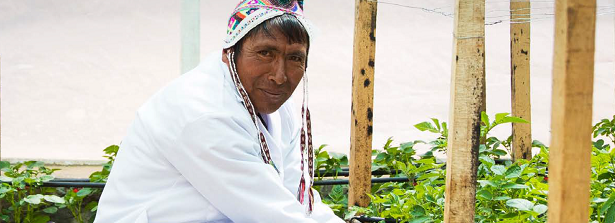The Status of patenting plants in the Global South

This research report finds that 60% of the 126 LMIC countries for which data was available allow for the patenting of plants or parts thereof, despite the flexibilities of the WTO TRIPS Agreement regarding the non-patentability of plants. Oxfam is concerned that the growing number and scope of patents on plants, plant parts and DNA sequences will threaten Food and Nutrition Security by blocking the free availability of these materials for further breeding and re-planting by all stakeholders.
Over the last few decades, the number of patents on plants and plant parts has greatly increased in various parts of the world. Most research into the spread of plant patents, however, has focused exclusively on developed countries – the USA and European Union, in particular – while little is known about the extent to which plants are being patented in other parts of the world. This research report aims to fill this information gap by providing an overview of the status of patenting plants in the developing countries and emerging economies of the Global South. The research, conducted by Professor Carlos M. Correa, is based on the analysis of legal provisions, patentability guidelines, court decisions (where they exist) and a sample of patents granted in the countries selected for this study.
The findings indicate that despite the flexibilities of the WTO TRIPS Agreement regarding the non-patentability of plants, 60% of the 126 countries in the Global South for which data was available allow for the patenting of plants or parts thereof, and in the jurisdictions involved many such patents were identified.
With this research report, Oxfam aims to contribute to awareness and understanding of the extent to which plants are being patented in developing countries in order to inform societal discussion and decision-making.
In its Position Statement that precedes the Research Report, Oxfam states that “to feed a growing world population and optimally adapt to the challenges of climate change, all farmers and breeders need unrestricted access to the building blocks of life. Oxfam is concerned that the growing number and scope of patents on plants, plant parts and DNA sequences will threaten food and nutrition security by blocking the free availability of these materials for further breeding and re-planting by all stakeholders”.
As part of its efforts to promote an enabling policy environment for farmers’ seed systems and the implementation of Farmers’ Rights, Oxfam will continue to monitor patent trends in the Global South and assist stakeholders to raise awareness about the impacts, organize advocacy and take remedial actions where and when needed.
The report (also available in French, Spanish and Chinese) with all Annexes can be found here.
For questions, please contact






I together with my friends appeared to be analyzing the good secrets and techniques on your site and so then got an awful feeling I had not expressed respect to the web blog owner for those secrets. My guys came for this reason excited to read them and have in truth been taking pleasure in these things. Thank you for being really accommodating as well as for selecting this sort of useful issues millions of individuals are really needing to be aware of. My personal honest regret for not expressing appreciation to earlier.